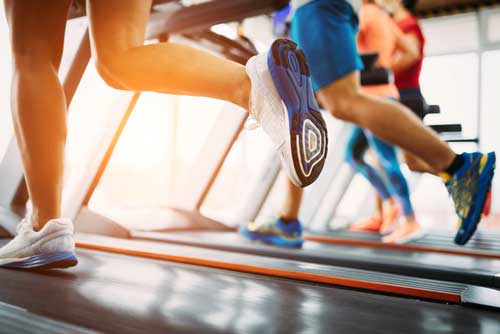Whether you want to learn a new dance step or fix the slice in your golf swing, it’s not easy to learn a new motor skill.
Sometimes your body just won’t do what you want it to do.
Now, new research has uncovered a simple trick that might help.1
The study was conducted by scientists at the School of Physical and Occupational Therapy at McGill University in Montreal. It found that you’ll learn a new motor skill faster if you do a quick cardiovascular workout right after practicing it.
As little as 15 minutes of cardio increases the brain’s connectivity and efficiency. This could be helpful to anyone. But it’s particularly important for stroke victims or anyone who loses mobility due to an injury. The technique could help them recover their physical abilities faster.
The researchers had the study participants work on two different motor learning tasks. First was a “pinch task.” It involved gripping a dynamometer—a handheld device that reacts to the degree of pressure used to squeeze it. The dynamometer was hooked up to a computer screen. Subjects had to align red rectangles on the screen by using varying amounts of force.
Afterward, the subjects either exercised for 15 minutes or rested.
The participants then repeated the task while researchers took readings of their brain activity.
The next day, the subjects did the task again. Those who exercised after doing the task consistently performed better. And brain wave readings showed that different areas of their brains connected more efficiently compared to subjects who rested.
15 Minutes to Master a New Skill
The take-home message from the study is that if you’re learning a new motor skill, do a quick cardio workout afterward. You’ll learn faster. It can be running, biking, swimming, using an elliptical machine, calisthenics…whatever gets your heart pumping.
And don’t forget to get a good night’s sleep.
Professor Marc Roig was the senior author of the study. “Sleep can interact with exercise to optimize the consolidation of motor memories,” he said.
Editor’s Note: If you’re concerned about memory loss, you can find help HERE.
Related Articles
Need to Focus? Drink This
Study Reveals Best Exercise for Your Brain
This Workout is Better Than All Others for Older Folks
Like this Article? Forward this article here or Share on Facebook.
References:
1 https://www.ncbi.nlm.nih.gov/pubmed/?term=10.1016%2Fj.neuroimage.2018.03.029

